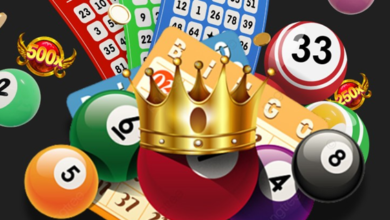Gamefound vs Kickstarter: Which Crowdfunding Platform Is Best for Board Games?

Crowdfunding has revolutionized the board game industry, allowing independent creators and established publishers to bring their ideas to life. For years, Kickstarter has been the dominant platform, offering vast exposure and a proven track record. However, Gamefound has emerged as a dedicated alternative designed specifically for board game projects. Both platforms offer unique advantages, making the decision of where to launch a campaign crucial for success.
Understanding the Two Platforms
Kickstarter has been the go-to choice for creators across various industries, from technology to fashion, and of course, board games. Its massive audience and established reputation make it an attractive option for those looking to reach a wide market. Gamefound, on the other hand, was created specifically for board games and related products. With features tailored to this niche, it offers unique advantages that could be game-changers for designers and publishers.
Audience Reach and Exposure
A major factor when selecting a crowdfunding platform is the audience. Kickstarter boasts millions of backers from different backgrounds, creating opportunities for games to reach beyond the typical board game community. Its broad exposure helps projects gain visibility from people who might not actively seek new board games but are willing to support creative ideas. Gamefound, while more specialized, ensures that campaigns attract dedicated board game enthusiasts who are highly engaged and more likely to support multiple projects within the industry.
Tools and Features for Creators
The tools available to campaign creators also make a significant difference. Kickstarter provides a streamlined, user-friendly interface, making it easy for newcomers to launch a project. However, its generalist approach means that some board game-specific needs require external solutions. Gamefound, by contrast, integrates features like pledge management, stretch goals, and add-ons directly into the platform. These built-in tools help simplify campaign management and reduce reliance on third-party services, making the process smoother for creators.
Costs and Funding Model
When considering fees and funding models, Kickstarter takes a percentage of the total funds raised, typically around 5%, plus payment processing fees. Gamefound offers similar pricing but differentiates itself with features that allow campaigns to continue taking late pledges even after their main funding period ends. This extended support can be invaluable for game creators who need additional funding post-campaign.
Marketing and Visibility
Marketing and visibility also play a vital role in a campaign’s success. Kickstarter’s algorithm often favors projects that gain early traction, pushing them to a wider audience. While this can be beneficial, it also creates intense competition, requiring significant pre-launch marketing efforts. Gamefound, being more niche, has less competition for attention, making it easier for board game projects to stand out. Additionally, Gamefound actively supports campaigns by featuring them on its platform, increasing visibility without requiring massive external advertising efforts.
Community Engagement
For creators who prioritize community engagement, both platforms offer ways to interact with backers. Kickstarter includes a comments section and regular updates, but Gamefound goes further by incorporating community-driven features like integrated stretch goals and voting mechanisms. These tools help creators maintain high levels of engagement and keep backers involved throughout the funding process.
Making the Right Choice
Deciding between Kickstarter and Gamefound vs Kickstarter depends on a game creator’s priorities. Kickstarter offers unparalleled reach and familiarity, making it ideal for projects looking to attract a broad audience. Gamefound, however, provides tailored solutions specifically for board game creators, with built-in tools that streamline the process. Those seeking an all-in-one solution with built-in pledge management may find Gamefound the better choice, while those relying on established crowdfunding habits and a diverse backer base may prefer Kickstarter.
Ultimately, both platforms have their strengths, and the best choice depends on the unique needs of each board game project. Understanding the differences can help creators make informed decisions that maximize their funding potential and ensure a successful campaign.





